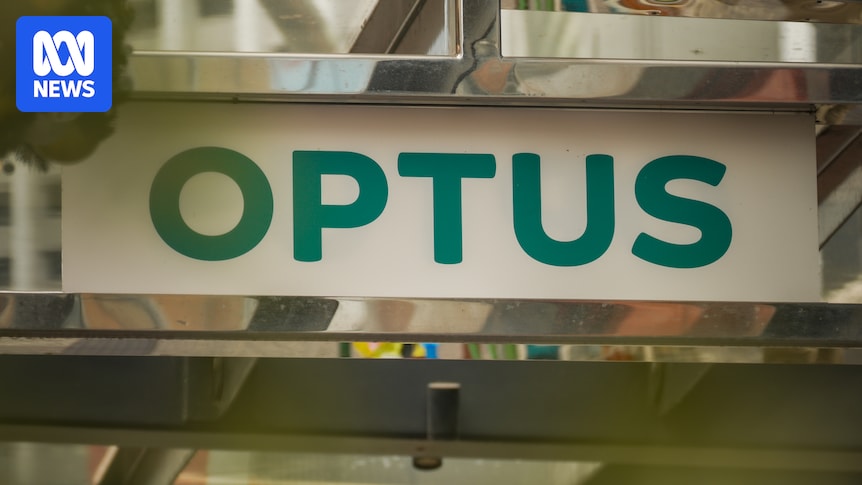
In a significant development for the telecommunications sector, Optus has announced the upcoming departure of two senior executives. Chief Financial Officer Michael Venter is set to retire next year, stepping down from his role as a Director on the Optus Board. Meanwhile, Chief Information Officer Mark Potter will leave in March 2026. This leadership transition comes as the company navigates a series of challenges, including recent network issues that have drawn public scrutiny.
Optus CEO Stephen Rue expressed gratitude for Venter’s contributions, noting his role as interim CEO prior to Rue’s appointment. Rue also acknowledged Potter’s decision to depart, highlighting the technological advancements achieved under his leadership. John McInerney has been named as the incoming Chief Information Officer, starting in November 2025.
The announcement comes as Optus continues to recover from a network upgrade earlier this year that led to a critical triple-0 outage, linked to three deaths. This incident has intensified the focus on the company’s operational resilience and leadership effectiveness.
Market Snapshot: ASX and Global Indices
The Australian Securities Exchange (ASX) closed flat at 9,032 points, reflecting a broader trend of market stagnation. The Australian dollar also remained steady at 64.84 US cents. In contrast, international indices showed varied performances, with the S&P 500 down by 0.5% and the Nasdaq dropping by 0.9%. The FTSE, however, saw a rise of 0.9%, indicating some resilience in the UK market.
Commodity prices also presented a mixed picture. Spot gold fell by 0.3% to $US4,078 per ounce, while Brent crude surged by 2.33% to $US64.05 per barrel, driven by geopolitical tensions affecting supply chains.
Economic Insights: Inflation and Interest Rates
The economic landscape remains complex, with the National Australia Bank (NAB) highlighting concerns over inflationary pressures. The August CPI indicator suggests a strong rise in Q3 trimmed mean inflation of 0.9% quarter-on-quarter, posing challenges for monetary policy. The Reserve Bank of Australia (RBA) faces a delicate balancing act, with inflationary pressures potentially delaying anticipated rate cuts.
“We recently pushed our rate call out on the back of higher inflation in the quarter, though still expect the next move to be down,” NAB noted, emphasizing the tension between disinflation and rising unemployment risks.
Meanwhile, the price of Brent crude has risen sharply, influenced by US sanctions on major Russian oil exporters. RBC Capital Markets analysts suggest that these sanctions could significantly impact global oil supply dynamics, drawing parallels to past sanctions on Iran.
Corporate Developments and Economic Outlook
In the corporate sector, BHP Chair Ross McEwan commented on the potential for mergers and acquisitions, emphasizing the importance of strategic growth opportunities. This follows a critical minerals agreement between the US and Australia, aimed at countering China’s influence in the sector.
BHP’s CEO, Mike Henry, indicated that regulatory challenges could lead to “difficult decisions” regarding its metallurgical coal business in Australia. The company has already announced job cuts at a Queensland coking coal mine, citing low prices and high state government royalties.
In the energy sector, Karoon Energy reported an 8% surge in share prices, driven by increased sales revenue from its Baúna project in Brazil. CEO Julian Fowles attributed this to higher average realized oil prices and strong cash flows, which have helped reduce the company’s net debt.
Super Retail Group’s AGM highlighted the impact of promotional campaigns on sales, with consumer spending expected to peak during the Black Friday and Christmas periods. E & P Capital noted that recent management changes have not disrupted operational momentum, providing reassurance to investors.
Global Economic Trends and Future Projections
Globally, the Bank of Korea’s decision to hold interest rates steady reflects concerns over instability in the real estate sector, particularly in Seoul. Oxford Economics noted that housing markets are showing signs of overheating, influencing monetary policy decisions.
Fitch Solutions’ BMI unit forecasts a cautious approach to interest rate adjustments in Australia, predicting a 25 basis point cut by the end of FY2025/26. The report suggests that inflation may exceed the RBA’s target range, limiting the scope for further rate cuts.
As the economic landscape continues to evolve, stakeholders across sectors are closely monitoring these developments, seeking to navigate the challenges and opportunities that lie ahead. With key economic indicators and corporate strategies in flux, the coming months will be critical in shaping Australia’s economic trajectory.







